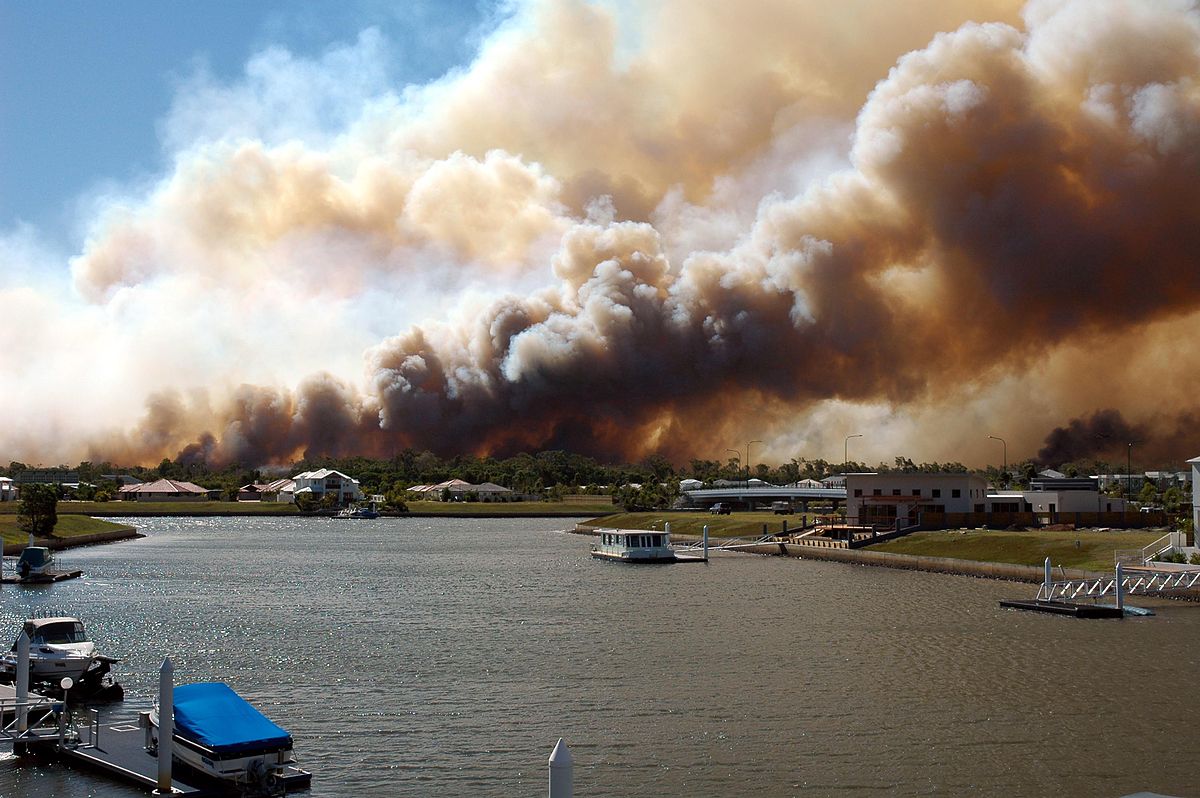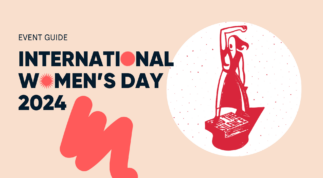Image: Chris Putman
Climate change represents a universal crisis, impacting every region of our planet through extreme weather events, rising sea levels, and shifting weather patterns. In the context of this global issue, Australia emerges as a crucial example where the dynamics of gender equality and climate change intersect markedly. This article aims to elucidate how climate change intensifies gender inequalities in Australia, emphasising the imperative of addressing these disparities to pave the way for a sustainable future.
Economic Disparities and Female Vulnerability
Economic disparities render women particularly susceptible to climate change impacts. Research indicates that frequent bushfires, a common climate-related disaster in Australia, have a profound and enduring impact on women’s financial stability. These catastrophic events not only lead to the loss of homes and livelihoods but also aggravate existing economic inequalities, disproportionately disadvantaging women (RMIT University, 2022).
Gender Roles and Increased Susceptibility
Traditional roles, especially prevalent in rural settings, further exacerbate women’s vulnerability to climate change. In many Australian rural communities, women are the primary caregivers and are tasked with securing food for their families. As climate change triggers resource scarcity, these responsibilities become increasingly burdensome, adversely affecting women’s physical and mental health (Austin et al., 2020). Further, research has shown that women are at greater risk of domestic abuse in the aftermath of bushfire. As climate change increases the frequency and severity of bushfires in Australia, the impact on women’s safety cannot be ignored.
Health Implications for Women
The escalation of temperatures and the frequency of extreme weather events can worsen health conditions that disproportionately affect women, such as respiratory ailments and heat-related illnesses (Pandipati & Abel, 2023). Additionally, the stress and trauma associated with climate events significantly impact mental health, with women often bearing the responsibility of caring for family members affected by these events.
Underrepresentation in Climate Change Mitigation
A significant gap exists in the representation of women in key sectors addressing climate change. For instance, in Australia’s clean energy sector, women constitute less than 39 percent of the workforce and are even less represented in leadership roles (McAllister, 2023). This gender imbalance can impede the development of inclusive and equitable energy solutions, a critical component of climate change mitigation. The absence of female perspectives in energy policy and infrastructure development could lead to solutions that fail to comprehensively address the needs of all community segments.
Policy Gaps and Gender-Inclusive Solutions
Despite being disproportionately affected, women are underrepresented in climate policy development (Lau et al., 2021). This disparity often results in Australian policies that overlook the specific challenges and needs faced by women (Listo, 2019). To effectively address the intersection of gender equality and climate change, policies need to be crafted with a gender lens. This involves recognising the unique impacts of climate change on women and ensuring that adaptation and mitigation strategies are accessible and beneficial across all genders. Inclusive policies not only advance gender equality but also lead to more effective and sustainable climate solutions. Recognising women as not just victims but vital agents of change is essential, as their unique perspectives and experiences contribute significantly to formulating effective climate responses.
Advancing Environmental Stewardship: VWT’s Progressive Role from Watermark to Climate Policy
In the realm of environmental sustainability, the Victorian Women’s Trust (VWT) has played a pivotal role, particularly in amplifying women’s voices and perspectives. Building on the legacy of its innovative Watermark Australia Project, which significantly enhanced community engagement in water conservation, the VWT further cemented its commitment to sustainability through its 2020 Climate Change Bill submission. This submission was a testament to the Trust’s ongoing advocacy for inclusive and effective environmental policies. By intertwining the insights gained from the Watermark Australia Project with today’s environmental challenges, VWT has showcased a unique model of sustainability advocacy. This approach not only addresses the immediate concerns of climate change but also emphasises the crucial role of women in leading and shaping environmental discourse and policy.
 Prof. Fang Zhao
Prof. Fang Zhao
CEO of Strategy&Ops Consultancy, Melbourne, Australia
ceo@strategyandops.net
Prof. Fang Zhao, an academic and business leader, is deeply committed to advancing sustainability and gender equality. As the Founder and CEO of Strategy&Ops Consultancy, a Melbourne-based firm, she leads a multidisciplinary team devoted to offering practical and sustainable solutions to diverse environmental challenges. The team’s commitment to sustainable and inclusive growth is anchored in the belief that diverse perspectives are crucial for effectively tackling climate change. (For more information, please visit https://strategyandops.net.)
References
Austin, E. K., Rich, J. L., Kiem, A. S., Handley, T., Perkins, D., & Kelly, B. J. (2020). Concerns about climate change among rural residents in Australia. Journal of Rural Studies, 75, 98-109.
Lau, J. D., Kleiber, D., Lawless, S., & Cohen, P. J. (2021). Gender equality in climate policy and practice hindered by assumptions. Nature Climate Change, 11(3), 186-192.
Parkinson D. and Zara C., (2016) The hidden disaster: domestic violence in the aftermath of natural disaster
Listo, R. (2019). Far from equal: The gendered impacts of climate change in Australia. https://www.broadagenda.com.au/2019/far-from-equal-the-gendered-impacts-of-climate-change-australia/.
McAllister, J. (2023). Australia pledges gender equality to clean energy sector. https://minister.dcceew.gov.au/mcallister/media-releases/joint-media-release-australia-pledges-gender-equality-clean-energy-sector
Pandipati, S., & Abel, D. E. (2023). Anticipated impacts of climate change on women’s health: A background primer. International Journal of Gynecology & Obstetrics, 160(2), 394-399.
RMIT University (2022). How will women be impacted by hybrid working and climate change? https://www.rmit.edu.au/news/all-news/2022/mar/hybrid-working-women



